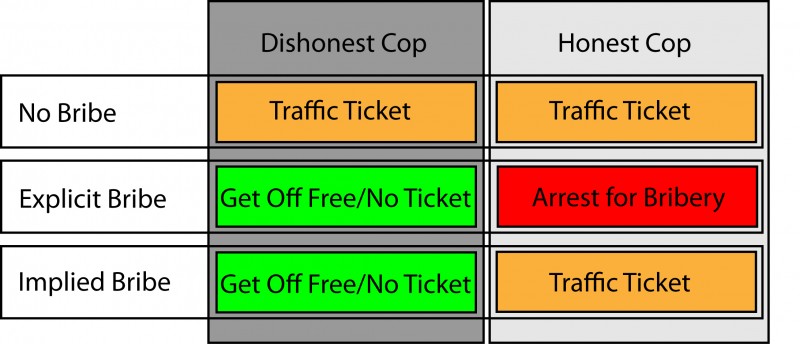In his book “The Stuff of Thought: Language as a Window into Human Nature”, Steven Pinker gave the following defense of language ambiguity:
Imagine you are stopped by a traffic cop for a violation. You would rather not get a ticket, and consider offering the cop a bribe. You have options: no bribe and definitely get the ticket; try a bribe and hopefully the cop will accept and let you go free this time. But what if the cop is an honest cop and doesn’t accept bribes? Then you just bought yourself a trip to jail for bribing an officer! That’s the worst possible outcome — a traffic ticket is better than a trip to jail AND a traffic ticket. But what if you just “sort of” offer the officer a bribe? Wave a wad of cash without actually offering it to the officer? A dishonest cop might take you up on the offer and let you go without a ticket. An honest cop could ignore the whole cash waving and write a ticket; or he could ask for clarification: “Are you trying to bribe me?” “On, no, officer. Of course not!” And you are left with a traffic ticket but no jail time.
Such ambiguity is built-in to all human languages and allows for nuanced approaches to difficult human interactions. See the logic graph below:

The “no bribe” scenario leads to a traffic ticket no matter what kind of cop you are dealing with. The “explicit bribe” scenario could result in you going scott free, but you also risk jail — very bad outcome. The “implied bribe” scenario is the best of both worlds — if you’re lucky, you might just get away without a ticket; but worse come to worse, you get a deserved traffic ticket. The ambiguity of interaction leads to the best possible set of outcomes.
Such finesse of human interactions and langue is important — it lowers friction; it allows for graceful exists from sticky situations; it enable large groups with different social norms to co-exist peacefully. What it is bad at is human-computer interaction and natural language interface processing — computers don’t do ambiguity well: “Do as I ask, not as I say.”
Watching my parents struggle with computer interfaces and Google searches shows just how painful strict constraints on language required for computer interaction are for novice users. It also shows how difficult is the solution to this problem. Siri will frustrate novice users for years to come; expert users will just adapt to Siri-speak!
